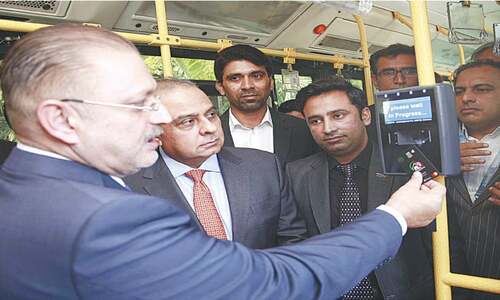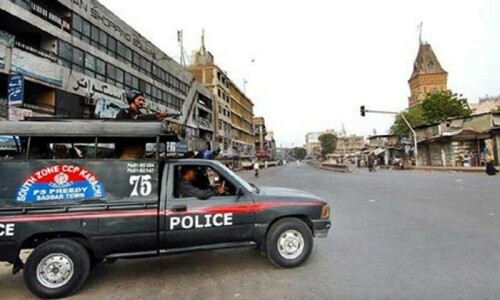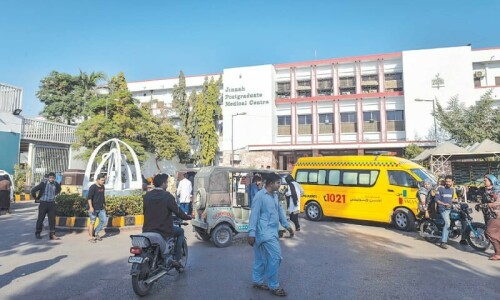KARACHI: Cloud seeding or ‘artificial rain’ is not a viable solution to the extremely hot weather being currently experienced in the city, which is likely to see a drop in temperatures in the coming days with the gradual dissipation of the low pressure system over the Arabian Sea, said experts while speaking to Dawn on Wednesday.
Cloud seeding (a form of weather modification), according to experts, is the attempt to change the amount or type of precipitation that falls from clouds, by dispersing substances into the air that serve as cloud condensation or ice nuclei, which alter the microphysical processes within the cloud.
The experts were giving their comments on the idea recently floated in a meeting chaired by the director general of the ministry of ports and shipping of using cloud seeding technique to induce rain. The method recommended was to mix about 30kg of sodium chloride with 200 litres of water and spread the mixture over clouds with a base of 2,000 feet.
The measure is aimed at bringing some relief from the hot weather conditions that have so far claimed lives of over 1,000 people in the city.
“You need to have big clouds with heavy moisture content to make cloud seeding successful, which we currently don’t have. And, as temperature is likely to come down in the coming days, it makes little sense to use this technique for lowering temperatures at that time,” said former chief meteorologist of Sindh-Balochistan region Tausif Alam.
Mr Alam said that the technique would have a temporary effect on the weather that would return to its normal course in maximum two days.
Sharing similar concerns, Dr Qamar uz Zaman Chaudhry, senior climate change expert currently serving as special adviser for Asia to the secretary general of the World Meteorological Organisation, contended that artificial rain was not a solution to Karachi’s intense weather conditions that, he said, required a greater understanding.
“Instead of blaming each other, there is a dire need to realise that climate is changing and intense weather conditions are likely to become frequent. Pakistan is not alone in this predicament as other countries are also experiencing the same phenomenon.
“But the difference is that they learn and make a strategy to address the challenge. Unfortunately, this is not the case in Pakistan,” he said.
In his opinion, the experience of extremely hot sustained weather for four days in Karachi was a rarity and what had exacerbated the weather conditions in Karachi is the urban heat island effect, which, he said, increased the temperature impact multiple times.
“It was not 45 degrees centigrade in Karachi. In fact, it was 50 degrees centigrade or even higher,” he said, adding that Karachiites were not used to that high temperature and fell victim to it, though similar weather conditions were experienced in other parts of Sindh.
The success rate of cloud seeding was not high, he said, though a number of countries were using the technique especially to tackle drought conditions.
“Basically, the technique is not meant for lowering temperatures,” he said, suggesting that the government and the media should educate people on how to cope with hot weather.
The technique, he said, was not costly and didn’t have any significant negative impact.
Other experts, who were part of the meeting recently held by the director general of ports and shipping ministry, also agreed with the idea that artificial rain in present conditions would be of little use and a better option would be to wait for the weather to get better.
Published in Dawn, June 25th, 2015
On a mobile phone? Get the Dawn Mobile App: Apple Store | Google Play














































